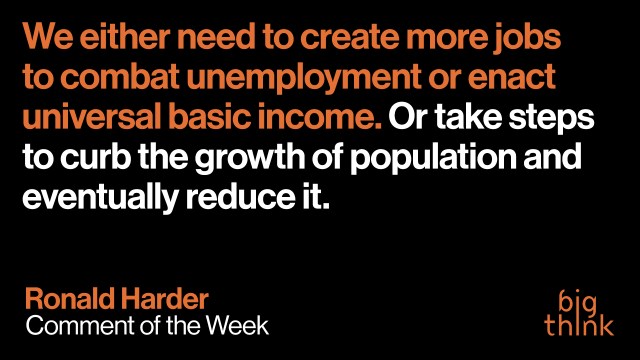5 Things The World Needs From Star Trek: Discovery
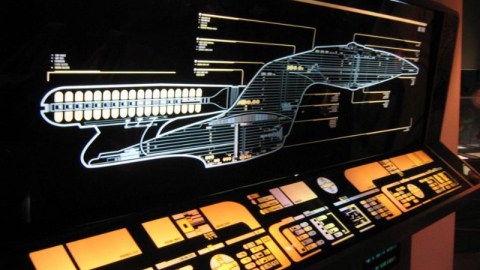
The first (double) episode has come and gone, but here’s what I hope for the series.
“We are what we are, and we’re doing the best we can. It is not for you to set the standards by which we should be judged!” –Capt. Picard, to Q
When the original Star Trek series first aired in 1966, it presented a new vision of the future, one that the world had never seen. Instead of a terrifying, empty abyss to get lost in, fighting a set of alien invaders, or looking ahead to a dystopian future where our technological riches have destroyed the kindness and generosity of the human spirit, Star Trek presented a uniquely positive and optimistic vision of the future. Technology had improved not just incrementally, but transformatively. Hunger and poverty were things of the past; economic goals were no longer the driving force of the human enterprise on Earth; nationalism had given way to a humanitarian world, where even aliens from other planets were granted the same rights and freedoms.
Even beyond our world, humans were allied with many other species, sharing our knowledge and working together for the common good of all. We could traverse the stars in mere hours or days instead of decades or lifetimes. We could heal the sick and injured with just a few non-invasive devices and procedures. We could communicate instantaneously with anyone, anywhere in the galaxy. But Star Trek’s greatest strength was holding up a mirror to our own, human struggles — both struggles of its time as well as timeless dilemmas inherent to being human — in a way that exposed our own frailties and failings, and forced us to confront some of our darkest fears about ourselves. This is where each new incarnation of Star Trek, at its best, truly shone.
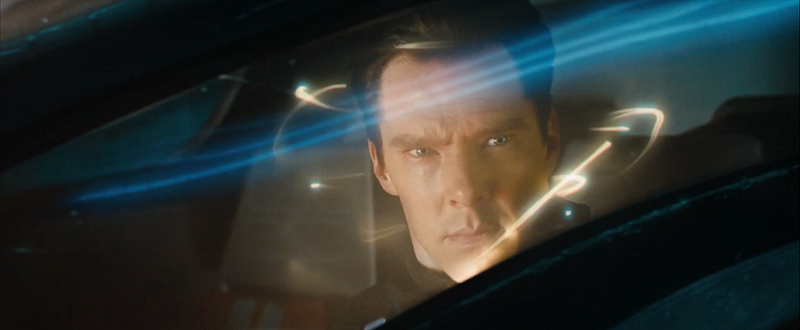
Humans are never perfect; our self-interest, fears, and our own ideologies often color our views of issues much larger than ourselves. Star Trek is at its best when it puts its characters in situations where they’re tempted to make poor decisions. Every series has examples like this, and some of those lessons could be even more apt today. Here are five things that Star Trek has addressed in the past, which would arguably provide even better lessons for our world today.

1.) Understanding an “other” where all you see is violence and murder. In the Original Series, The Devil in the Dark sees a large number of Federation miners being murdered by a mysterious monster, which simply turns out to be a mother protecting her young. When they learn to communicate with the creature, they find that the situation is even more dire: it’s preparing for the extinction of its race. In the end, they’re able to stop the killing (on both sides!) and both resume mining while helping the alien species survive. At a time when different races, genders, religions, and nationalities are frequently vilified, it’s important to remember the universal themes of humanity that unite us, and Star Trek: Discovery has the opportunity to tell that story as never before.
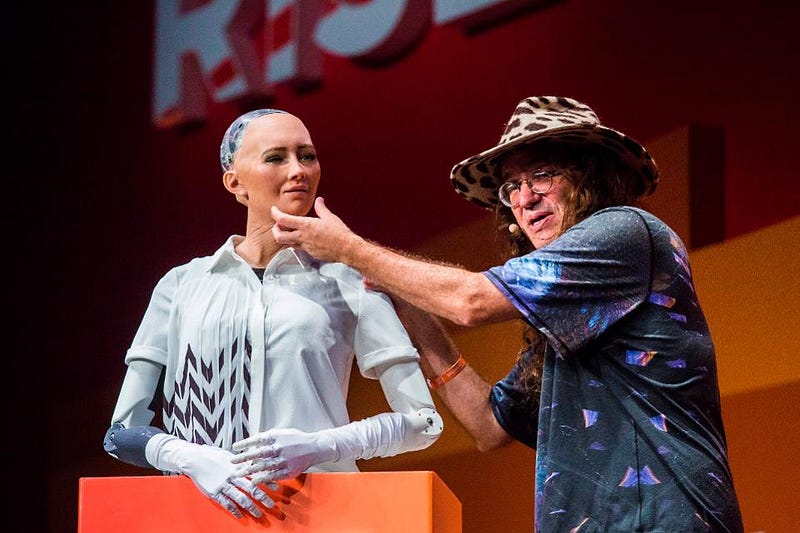
2.) What is it that makes us human, and what makes our lives so valuable? Many of us have strong feelings about this, but those feelings aren’t the same between us all. Some of us think it’s our intelligence, some think it’s our rise to dominance over the natural world, some think it’s our technology, and some think it’s the civilization we’ve developed. (A very non-exhaustive list.) In The Next Generation, The Measure of a Man puts Data, a one-of-a-kind android, on trial to determine whether he’s entitled to the rights of an intelligent, autonomous being, or whether he’s simply property. As we experience the rise of artificial intelligence, the automation and obsolescence of many different classes of jobs, and a fear of the unknown, asking these questions has never been more appropriate.

3.) Under what circumstances are we correct to trade our privacy for security? When the Patriot Act went into effect in the aftermath of 9/11, it was overwhelmingly popular and passed with bipartisan support, despite its critics noting that it blatantly curtailed the rights, freedoms, and autonomies of free American citizens. 16 years on, the Act has been renewed multiple times, and people have simply gotten used to being less free in the name of security. As Ben Franklin famously said:
Those who would give up essential Liberty, to purchase a little temporary Safety, deserve neither Liberty nor Safety.
In the Deep Space 9 episodes Homefront and Paradise Lost (which aired back in 1996, by the way), Captain Sisko returns to Earth to try and identify whether there are “changelings” — members of a powerful, hostile-to-humans alien race — on the surface by taking blood samples from everyone on the world. Sisko meets resistance to this invasion of privacy from a highly unexpected source: his own father. After quarreling and fighting with his own sense of ethics, Sisko forcibly takes a sample of blood, actually believing for a moment that his own father was the enemy in disguise. His betrayal of both his father and his principles accomplished nothing, but was a watershed moment for the show nonetheless.

4.) How far should one go to save their own lives/the lives of their own kind? For some, there’s no limit to the answer: they would kill everything else in the Universe to save themselves. For others, the right to your own life and liberty ends where the rights of another’s begin. In the Voyager episode Phage, one of the crewmembers has their lungs forcibly removed by a hostile, alien race. The reason? These aliens, the Viidians, are battling a species-wide hostile infection, known as the phage, and have seen thousands die on a daily basis for countless generations. While desperation at the ravages of the disease has driven them to desperate, immoral measures, Captain Janeway has to struggle with her own administration of justice, settling on mercy not out of compassion, but out of practicality. This exploration of morality and ethics is often when Star Trek is at its strongest.

5.) How confident are you that the “good guys” and the “bad guys” are really who you think they are? For many of us, when we hear a story about a confrontation or conflict between two sides — an unarmed citizen and a police officer; neo-nazis and antifa activists; liberals and conservatives; etc. — we are quick to identify one side as the hero (or victim) and the other as the villain. But sometimes, the party in the wrong is the one we more frequently sympathize with, exposing the flaw in our rush-to-judgment. In the Enterprise episode, The Andorian Incident, the suspicious Andorians arrive at a Vulcan monastery, disrupting this peaceful shrine and demanding answers. The captain and crew of the Enterprise intercede to protect the Vulcans and diffuse tensions, with wild ineptitude; their actions only amplify the suspicions of the Andorians. As the Vulcans protest and the conflict intensifies, the big reveal happens: the monastery is a front for a spy station, and the Vulcans, known as paragons of logic and honesty, are lying.
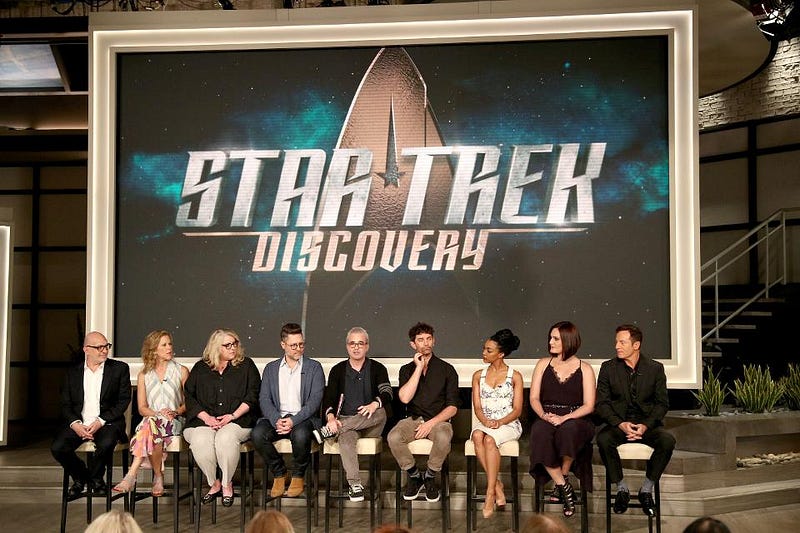
It’s incredibly difficult to even make the effort to understand those with different experiences, different priorities, or even different values from ourselves. Yet Star Trek is at its best when it gives us the opportunity to confront our worst impulses. Unless we are willing to consider the validity of perspectives other than our own, often including ones far outside our own experience, we may be doomed to dividing, rather than uniting, the world. With political issues like nationalism, sovereignty, autonomy, secession, racism, misogyny, police brutality, immigration and more in the spotlight right now, Star Trek has the unique capacity to confront these issues with the distance of the far future but with the intimacy of humanity. It is with this in mind that I most look forward to Star Trek: Discovery.
We all have different points of view of the world, seeing a variety of problems, fears, unmet needs, and with a variety of hopes for the messages we need to hear and the solutions we need to see. We’re just starting to learn what we’re getting with CBS’s new Star Trek series, Discovery. The first episode only aired on CBS, all subsequent episodes will now stream on CBS All Access, while Canada will stream it on CraveTV and all other international audiences can stream it on Netflix.
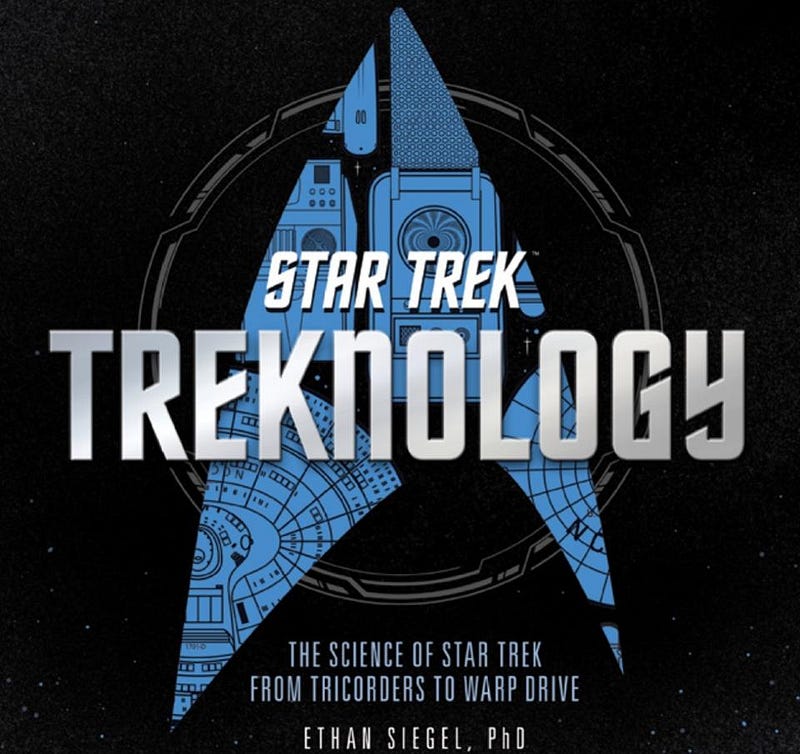
Ethan Siegel, astrophysicist and the author of Treknology, will be reviewing each episode of Star Trek: Discovery over on Forbes the day after it airs on CBS All Access. The first one is live now!
Ethan Siegel is the author of Beyond the Galaxy and Treknology. You can pre-order his third book, currently in development: the Encyclopaedia Cosmologica.





